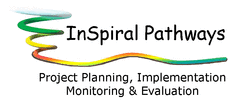A close relative of “sophisticated and effective” is the rarely stated, but often implicit, notion that some issues are just too complex for the proverbial man on the street to grasp. The assumption is that issues such as climate change, population growth and HIV/AIDS should be left to the experts while the rest of us can relax and watch Jerry Springer!
Another way of dealing with complex issues is to dumb them down – to be simplistic rather than simple. Dumbing down may be even more dangerous than the elitist stance outlined above. Dumbing down is the territory of those who are happy to selectively use facts to support a prejudice: climate change is a myth; family planning is impossible for members of certain religions; HIV and AIDS are rife throughout the whole of Africa.
Enter Hans Rosling, a wide-eyed, enthusiastic, charismatic, sword-swallowing Swedish Statistics Professor - an unlikely combination if you believe the stereotypes! Rosling, 64 years young, is passionate about data visualisation - crunching vast quantities of data into simple visual summaries that can inform everybody – real INFORM-ation. Through his Gapminder organisation, Rosling is harnessing the power of data visualisation to communicate the facts about global trends in international development to the 99.something percent of us who are not subject matter experts. In this way he aims to reduce prejudice concerning international development to help drive positive change. Classic Rosling presentations include 200 countries in 200 years in four minutes where he debunks the notion of a simple divide between the rich and poor, religions and babies where he shows that there is no relation between religion and the number of babies per woman, and my current favourite, Hans Rosling and the magic washing machine in which he communicates the drivers of energy use and economic development in a way that anybody can understand.
With the explosive increase in data production and an ever-growing competition for our attention, we all need to find the most effective ways to communicate the information we generate. Hans Rosling, you have shown us that simple and effective must be our default setting!

 RSS Feed
RSS Feed
